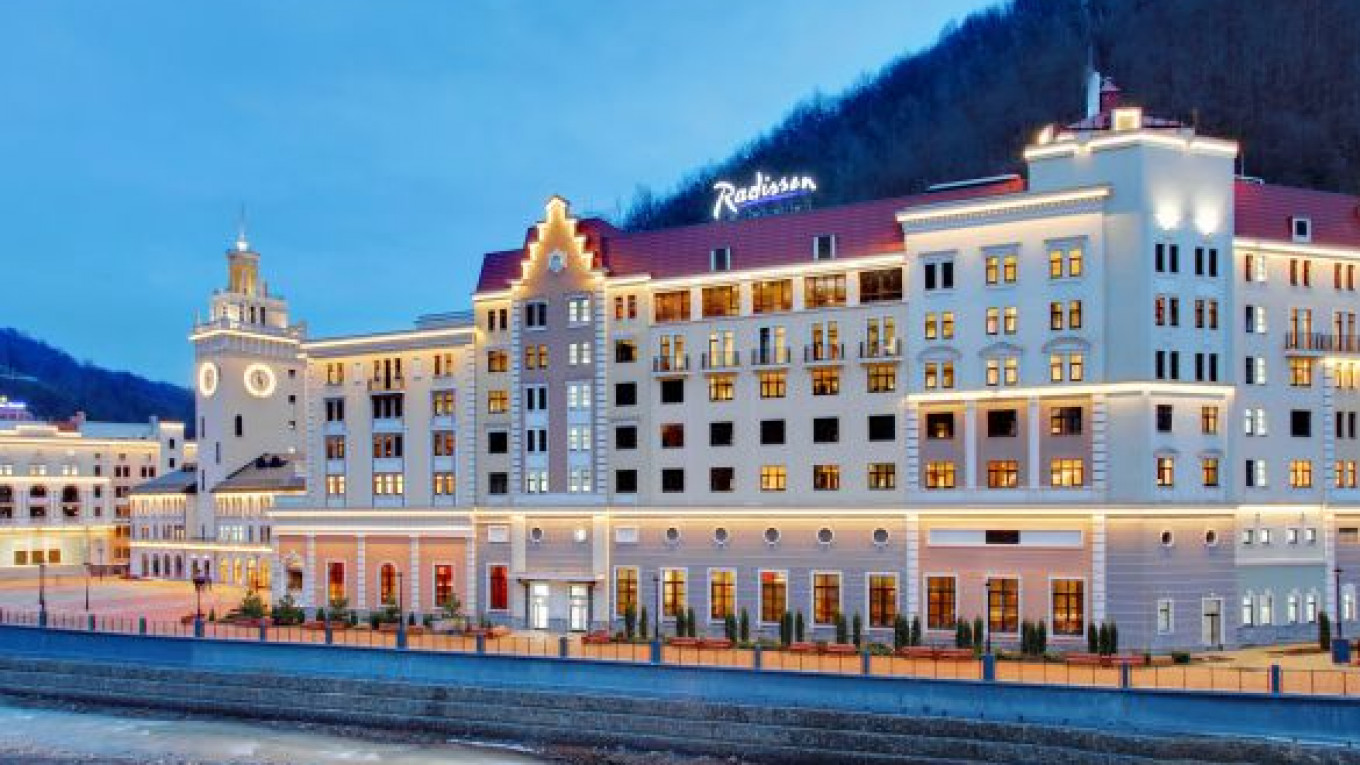YAROSLAVL — With 100 days left until the Winter Olympic Games, tourism industry insiders fear that the country has missed its opportunity to capitalize on the event and promote the host city to domestic and international tourists.
Long a coveted holiday destination, Sochi has lost its prestige in the post-Soviet period as more Russians choose to travel abroad for the same amount of money. In this context, the Winter Olympics seemed to be the event that could erase the Soviet-era stereotypes and transform the resort town into a desirable playground for foreigners.
But speaking on the sidelines of the annual Visit Russia Forum, which took place from Oct. 24 to 25 in Yaroslavl, 150 kilometers northeast of Moscow, marketing and brand managers said Sochi has not been able to reverse its image ahead of the biggest tourism event in modern Russian history.
The government "is planning to use this opportunity only after people come to Sochi," said Miroslav Roncak, regional director for Eastern Europe at FVW Mediengruppe, which studies travel patterns among German tourists. "Athletes and fans will come to Sochi. The idea is that they will see what is there and tell others about it. But I have not seen any targeted promotion of the city."
Sochi's tourist numbers have declined or stagnated in recent years, in part due to extensive Olympics-related construction and traffic jams. The city hosted 900,000 tourists in the year to mid-July, according to the local administration. By comparison, 1.3 million tourists visited the city over the same period in 2012.
But while Russians can place Sochi on the map and, subsequently, consider going there, the lack of targeted marketing efforts has prevented the city from becoming a recognized destination for foreign travelers.
"The only thing people know about Sochi is that it will host the Olympics, but there are a lot of platforms that could have been used to say something else about it," Vasily Dubeikovsky, head of CityBranding agency said. "The games will pass and that is it. What next? Will we all go to Sochi because the Olympics have taken place there?" ?
Creating a unique brand for a large city like Yaroslavl, which has 100,000 more residents than Sochi, would take about 12 months of preparation, in addition to the years needed afterwards to make the brand stick, Dubeikovsky said.
Making the city — or an event — memorable does not have to be expensive, said Gennady Shatalov, head of the Voronezh-based marketing agency, Region PR. It can be as cheap as releasing a cuddly mascot into the air on a bouquet of balloons, as was done during the closing ceremony of the 1980 Summer Olympics in Moscow.
But despite having more mascots to capitalize on than the 1980 Olympics, positive messages about Sochi often get buried under the waves of negative publicity surrounding the games. A record budget, traffic jams on the torch relay route and corruption reports are turning even Russian tourists away from the resort town, Shatalov said.
Meanwhile, Russians and foreigners who still want to explore the city balk at the high prices they would have to pay to do so. Hotels in Sochi cost an average of 5,600 rubles ($176) per night, while the neighboring city of Krasnodar offers rooms for an average 2,400 rubles per night.
Shatalov sees the potential of using the Olympic downhill ski slopes as a future tourism destination, provided that the price matches the quality of the infrastructure and service — a doubtful equation in the Russian tourism industry.
"If we do not match price to quality, we will not be able to convince foreigners to exchange the Alps for Sochi. For Russians, on the other hand, it would simply be beyond their means," Shatalov said.
Nearby regions also do not expect to cash in on the Winter Games. The few sports fans who do venture outside the Krasnodar region risk losing some of their festive spirit, forum participants said. With 100 days left to the start of the games, the federal highways bear no indication that the Olympics will take place in Russia.
There is only one way to save the situation — win as many medals as possible, Shatalov said.
"The bet is on one thing only," he said. "We Russians are very forgiving. We can forgive crazy spending, if there are good results in the competitions."
But others said the Olympics simply is not a big enough event to give Sochi a lasting appeal after the games end. What is needed is something bigger, perhaps even something of galactic proportions.
"A meteorite fell on Chelyabinsk. Now everyone definitely knows this city — it is the place with the meteorite," Yanina Dubeikovskaya, content director of the Davos World Communication Forum said. This event, she said, has given the city a new base for tourism, whereas "Sochi will only be known as the Olympic host city."
Contact the author at [email protected]
A Message from The Moscow Times:
Dear readers,
We are facing unprecedented challenges. Russia's Prosecutor General's Office has designated The Moscow Times as an "undesirable" organization, criminalizing our work and putting our staff at risk of prosecution. This follows our earlier unjust labeling as a "foreign agent."
These actions are direct attempts to silence independent journalism in Russia. The authorities claim our work "discredits the decisions of the Russian leadership." We see things differently: we strive to provide accurate, unbiased reporting on Russia.
We, the journalists of The Moscow Times, refuse to be silenced. But to continue our work, we need your help.
Your support, no matter how small, makes a world of difference. If you can, please support us monthly starting from just $2. It's quick to set up, and every contribution makes a significant impact.
By supporting The Moscow Times, you're defending open, independent journalism in the face of repression. Thank you for standing with us.
Remind me later.


